INTEGRATIVE MEANING
‘Behind everything is an order’
Albert Einstein (Einstein Revealed, PBS, 1997)
With humans’ seemingly-imperfect, ‘good-and-evil’-afflicted human condition now defended by Jeremy Griffith’s explanation of that divisive existence, it is finally possible to recognise the true integrative meaning of life and the laws of physics that govern it.
The following excerpt is from Freedom Essay 23: The integrative meaning of existence and its personification as ‘God’, by Jeremy Griffith; this essay forms part of the Freedom Essay series that appears on the WTM website.
The integrative meaning of existence and its personification as ‘God’
Written by Jeremy Griffith, 2017
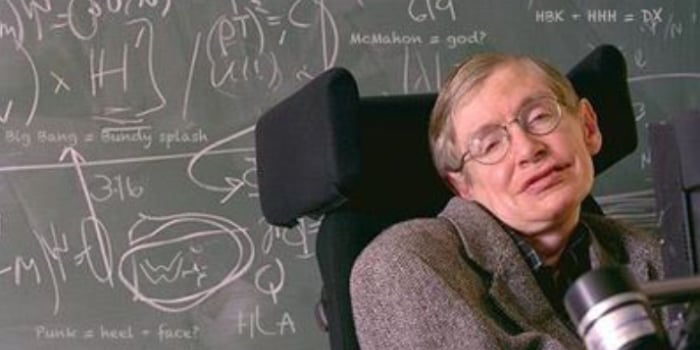
Stephen Hawking (1942–2018)
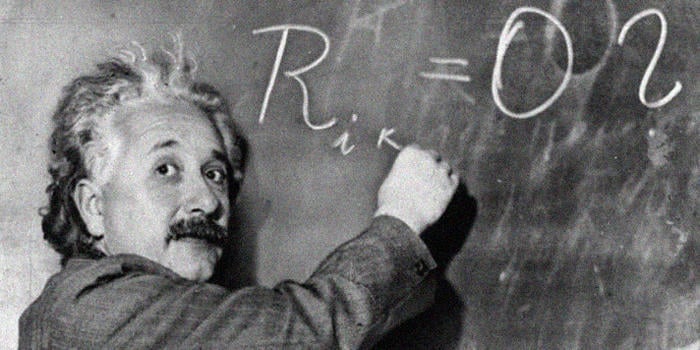
Albert Einstein (1879–1955)
The world’s greatest physicists, Stephen Hawking and Albert Einstein, have said, respectively, that ‘The overwhelming impression is of order…[in] the universe’ (‘The Time of His Life’, Gregory Benford, Sydney Morning Herald, 28 Apr. 2002), and that ‘behind everything is an order’ (Einstein Revealed, PBS, 1997). Yes, this ‘order’ IS apparent everywhere. Over the eons a chaotic universe organised itself into stars, planets and galaxies. Here on Earth, atoms became ordered or integrated to form molecules → which in turn integrated to form compounds → virus-like organisms → single-celled organisms → multicellular organisms → and then societies of multicellular organisms. Overall, matter is becoming ordered into larger wholes. So the direction or theme or purpose or meaning of existence is the ordering or integration or complexification of matter, a process that is driven by the physical law of Negative Entropy. (The law of Negative Entropy states that in an open system, where energy can come into the system from outside it — in Earth’s case, from the sun, and, in the case of the universe, from the original ‘big bang’ explosion that created it — matter integrates; it develops order.) ‘Holism’, which the dictionary defines as ‘the tendency in nature to form wholes’ (Concise Oxford Dictionary, 5th edn, 1964), and ‘teleology’, which is defined as ‘the belief that purpose and design are a part of nature’ (Macquarie Dictionary, 3rd edn, 1998), are both terms that recognise this integrative ‘tendency’.
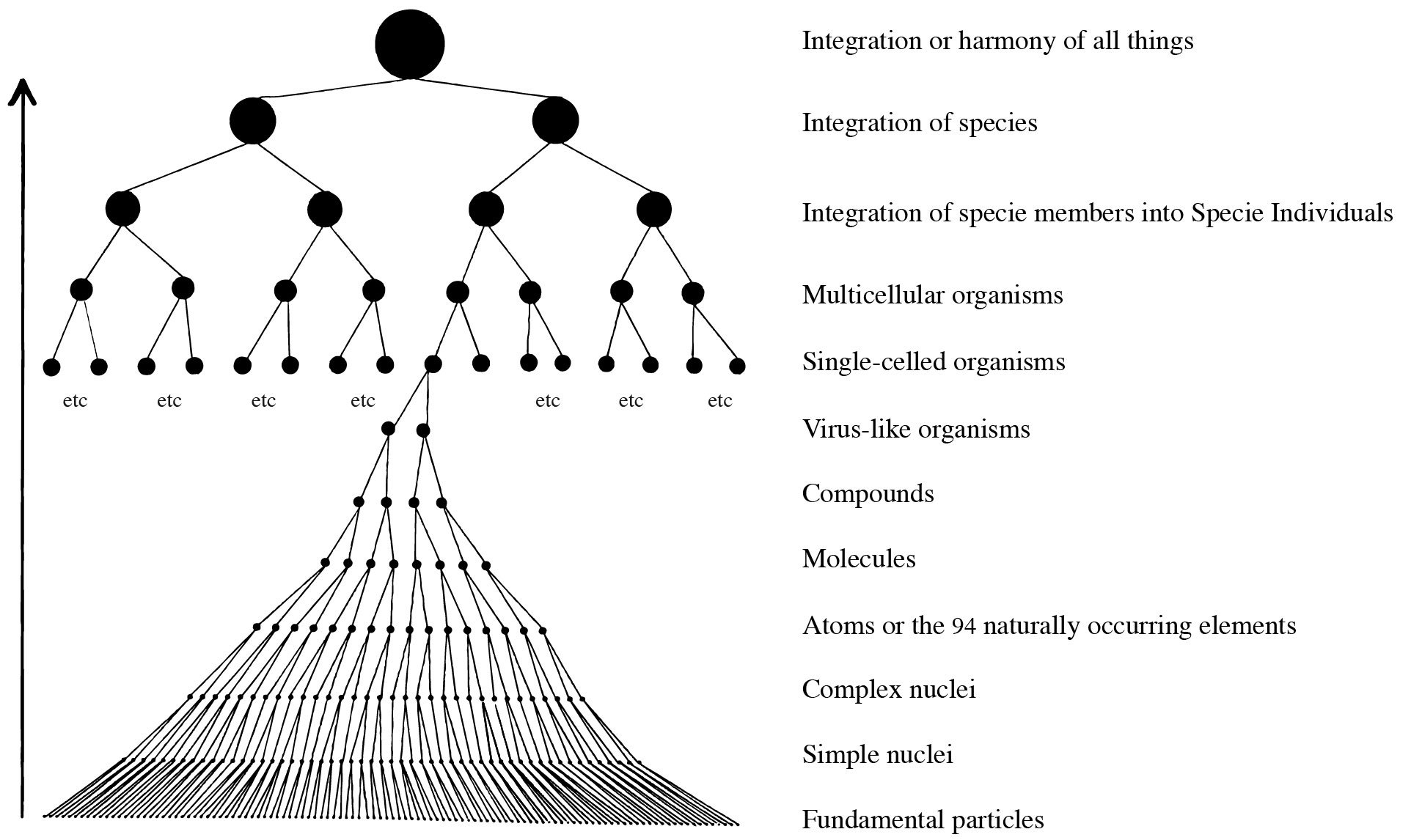
Chart showing the ordered integration of matter on Earth
HOWEVER, for humans, the great problem with this truth of the integrative meaning of life is that for a larger whole to form and hold together the parts of that whole must consider the welfare of the whole above their own welfare — put simply, selfishness is divisive or disintegrative while selflessness is integrative.
So, consider-others-above-yourself, altruistic, unconditional selflessness is the underlying theme of existence; it’s the glue that holds the world together and what we really mean by the term ‘love’. Indeed, if we consider religious terminology, the old Christian word for love was ‘caritas’, which means charity or giving or selflessness; see Col. 3:14, 1 Cor. 13:1–13, 10:24, and John 15:13. Of these biblical references, Colossians 3:14 perfectly summarises the integrative significance of love: ‘And over all these virtues put on love, which binds them all together in perfect unity.’ In John 15:13 we also see that Christ emphasised the unconditionally selfless significance of the word ‘love’ when he said, ‘Greater love has no-one than this, that one lay down his life for his friends.’ BUT, acknowledging and accepting this truth — that the meaning of life is to be integrative cooperative, selfless and loving — left humans feeling unbearably condemned as bad, evil or unworthy for our divisive competitive, selfish and aggressive, seemingly-unloving behaviour. Indeed, we have been so divisive, so ruthlessly competitive, selfish and brutal that human life has become all but unbearable and we have nearly destroyed our own planet! ONLY when we could truthfully explain the good reason WHY we humans have not been ideally behaved, explain our in-humanity — truthfully explain the human condition no less, which fortunately we now can — would it be psychologically safe to confront, admit and accept that the meaning of life is to be integrative, selfless and loving. (The truthful explanation of the human condition is presented in Video/F. Essay 3.)
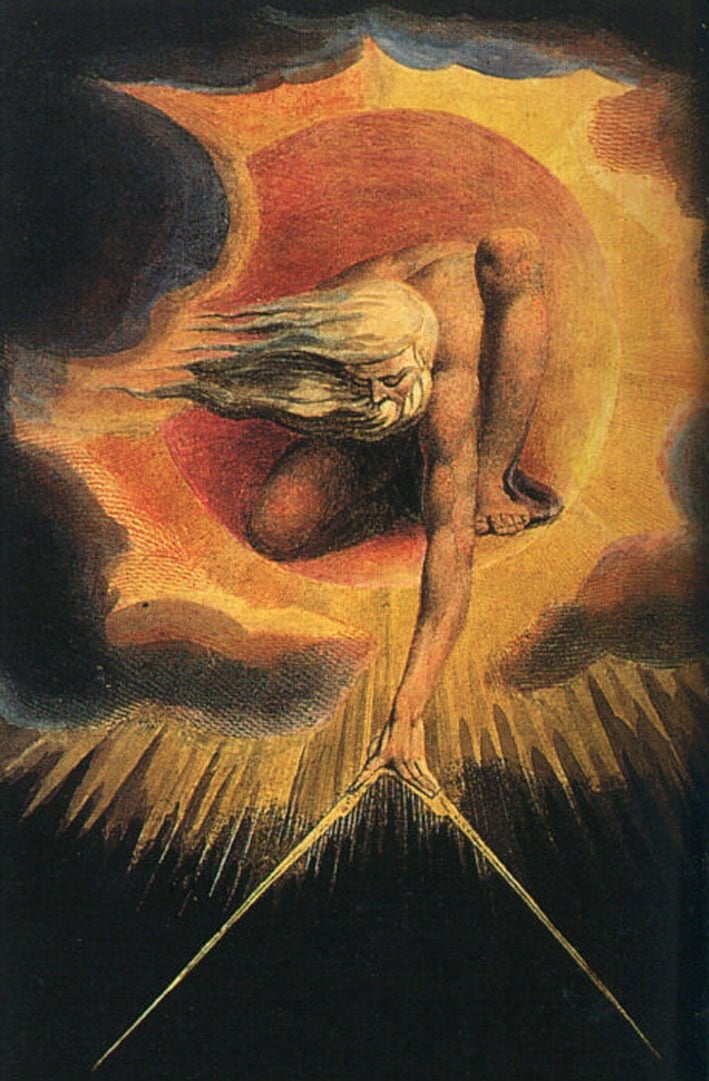
Ancient of Days by William Blake
Furthermore, the concept of ‘God’ is actually our personification of this truth of Integrative Meaning, and if we include more of what Hawking and Einstein said we can see that they both agree. Hawking: ‘The overwhelming impression is of order. The more we discover about the universe, the more we find that it is governed by rational laws. If one liked, one could say that this order was the work of God. Einstein thought so…We could call order by the name of God’ (Gregory Benford, ‘The time of his life’, The Sydney Morning Herald, 27 Apr. 2002; see www.wtmsources.com/170); and, ‘I would use the term God as the embodiment of the laws of physics’ (Master of the Universe, BBC, 1989). Einstein: ‘over time, I have come to realise that behind everything is an order that we glimpse only indirectly [because it’s unbearably confronting/condemning!]. This is religiousness. In this sense, I am a religious man’ (Einstein Revealed, PBS, 1997). As it says in the Bible, ‘God is love’ (1 John 4:8, 16). ‘God’ is the integrative, unconditionally selfless theme of existence. But again, the problem was that until we could truthfully explain the human condition we needed the concept of ‘God’ to remain safely abstract and undefined — we couldn’t afford to demystify ‘God’, admit the truth that the meaning of life is to be integrative, selfless and loving. It is little wonder then that we humans have been, as we say, ‘God-fearing’ — in fact, God-fearing to the point of being God-worshipping — not God-confronting!

When the scientist-philosopher Teilhard de Chardin wrote, ‘I can see a direction and a line of progress for life, a line and a direction which are in fact so well marked that I am convinced their reality will be universally admitted by the science of tomorrow’ (The Phenomenon of Man, 1938, p.142), he was recognising firstly how obvious the integrative, order-of-matter-developing theme of existence is; and, secondly, that this truth of the integrative ‘direction’ or theme or purpose or meaning of existence wouldn’t be able to be ‘admitted’ until the human-condition-resolved ‘science of tomorrow’ emerged, which relievingly it now has. (See F. Essay 25 for the real story of the integrative development of life that this ‘science of tomorrow’ now makes possible.) ‘Yesterday’s’ scientists avoided the overarching, truthful whole view of the integrative meaning of existence and the issue of the human condition it raised and instead adopted a reduced view that only focused down on to the details about the mechanisms of the workings of our world — they have been what’s called ‘reductionist’ and ‘mechanistic’, not ‘teleological’ and ‘holistic’ — and the contrivance they developed to avoid the truth of Integrative Meaning was to assert that there is no direction or meaning to existence and that change is random. (F. Essay 25 also includes discussion on science’s denial of Integrative Meaning.) Furthermore, to avoid religion’s acknowledgement of Integrative Meaning (albeit an indirect and abstract acknowledgement in the form of the concept of ‘God’) ‘yesterday’s’ scientists claimed that religion and science were two totally unrelated realms — to the point that the famous Harvard biologist E.O. Wilson has said, ‘I take a very strong stance against the mingling of religion and science’ (National Geographic Magazine, May 2006). Of course, as the Nobel Prize-winning physicist Charles H. Townes truthfully admitted, ‘they [religion and science] both represent man’s efforts to understand his universe and must ultimately be dealing with the same substance. As we understand more in each realm, the two must grow together…converge they must’ (‘The Convergence of Science and Religion’, Zygon, Vol.1 No.3, 1966).
Indeed, the great hope implicit in the reductionist, mechanistic approach was that by finding understanding of the mechanisms of the workings of our world, its practitioners would at least be assembling the means by which the human condition might one day be able to be explained — which is exactly what they have achieved. Through the gradual accumulation of knowledge about the mechanisms of the workings of our world, scientists found understanding of the difference in the way genes and nerves function, which, as is explained in Video/F. Essay 3 and chapter 3 of FREEDOM, is the key insight that at last made it possible to explain the human condition.
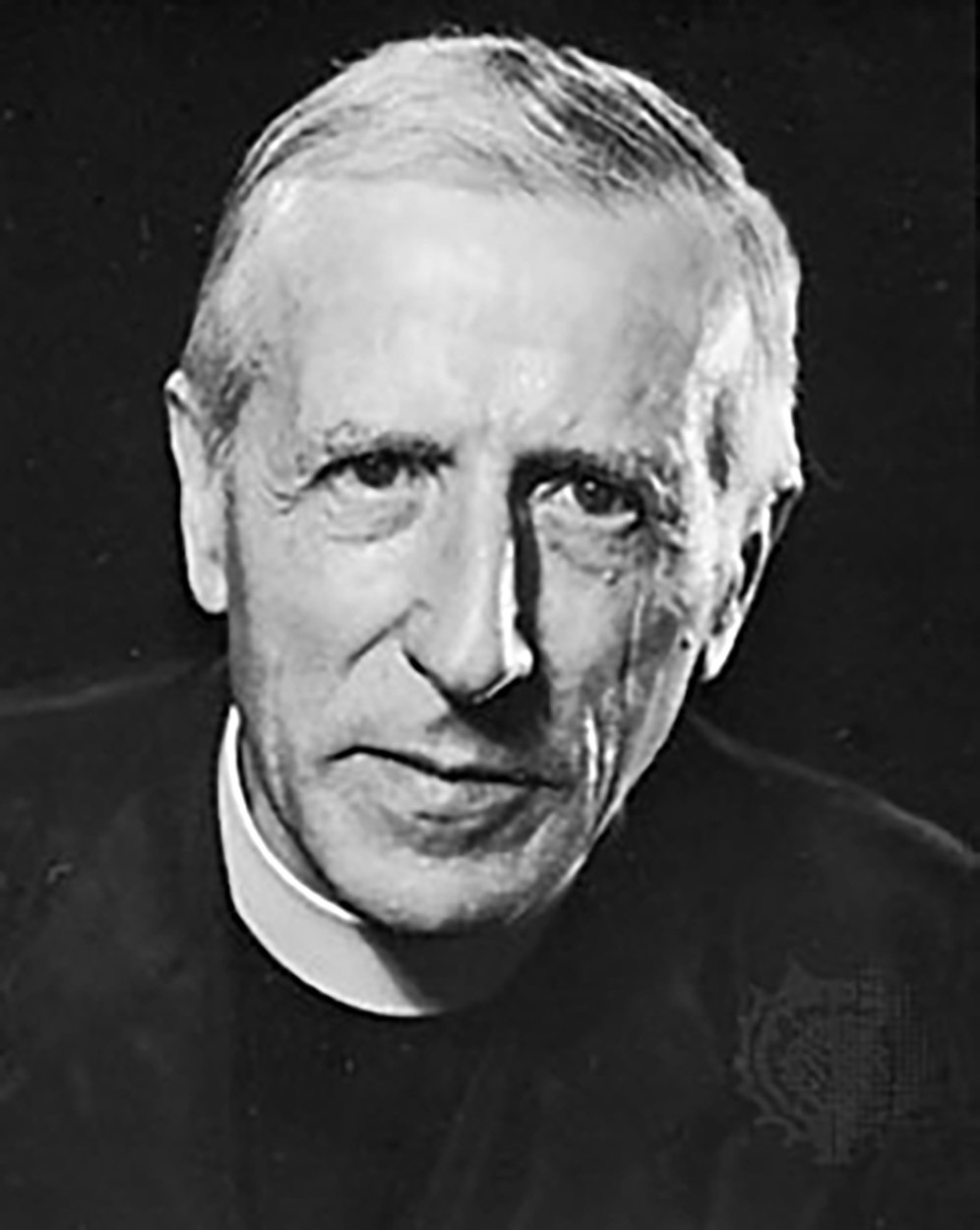
Teilhard de Chardin (1881–1955)
So it is only now that the human condition has been explained that de Chardin’s integrative-‘direction’-or-theme-or-purpose-or-meaning-acknowledging ‘science of tomorrow’ can emerge. And it is also only now that the integrative ideals and our lack of compliance with them can be reconciled and religion and science ‘converge’. Furthermore, finding understanding of our less-than-ideally-behaved human condition is the crucial insight we needed to psychologically rehabilitate the human race. The famous psychoanalyst Carl Jung was forever saying that ‘wholeness for humans depends on the ability to own their own shadow’ because he recognised that only finding understanding of our dark side could end our underlying insecurity about our fundamental goodness and worth as humans and, in so doing, make us ‘whole’ and restore our humanity, the cooperative, harmonious integrated state. Yes, it is only now that we can at last explain the human condition that we can understand and thus heal that divisive competitive, selfish and aggressive, seemingly-‘unGodly’ condition! That most beautiful and repeated prayer, The Lord’s Prayer, ‘Our Father in heaven [Integrative Meaning], hallowed be your name, your [integrative] kingdom come, your [integrative] will be done on earth as it is in heaven’ (Bible, Matt. 6:9-10) has finally been answered. The integrative state returns to the lives of humans.
For the full explanation of the integrative meaning of existence, read chapter 4 of FREEDOM. All the material in this essay, and much more, can be found in this chapter of FREEDOM.
